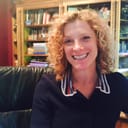Stay in the Loop
BSR publishes on a weekly schedule, with an email newsletter every Wednesday and Thursday morning. There’s no paywall, and subscribing is always free.
The stars of Yiddish song
Lyric Fest presents Yiddishe Nightingale, A Short History of the American Yiddish Theater

It was quite something to listen to Lyric Fest’s production of Yiddishe Nightingale, A Short History of the American Yiddish Theater at the Academy of Vocal Arts on March 2 in the midst of Russia’s attack on Ukraine and the heroism of its Jewish president.
So much of early Yiddish song is essentially pogrom music originating in or near the Pale of Settlement, a mishmash Hebrew and German Jews brought with them when they fled their shtetls in the wake of Tsar Alexander’s death, some to the United States. But while an earlier, assimilationist generation dismissed Yiddish as a “ghetto language,” a new generation has been working hard to bring it back into the fold. Few have seen more success than Zalmen Mlotek, artistic director of New York’s National Yiddish Theatre Folksbiene, and the evening’s pianist/narrator.
He joined Cantor Elizabeth Shammash (of Merion Station’s Congregation Adath Israel) and Cantor Thom King (of Baltimore’s Congregation Beth El) to present the breadth of Yiddish music from the mid-1800s right up to Mlotek’s wildly successful all-Yiddish 2018 production of Fiddler on the Roof. The selection from that show takes Sheldon Harnick and Jerry Bock’s “If I Were a Rich Man,” and runs it through Shraga Friedman’s translation in “Ven Ikh Bin a Rotchild (If I Were a Rothschild),” a rich man whose name even humble dairy farmer Tevya would have known.
Wide-ranging roots
It’s a moving journey, and far less Klezmer-influenced than one might imagine. The influences that made the Yiddish stage are as wide-ranging as the roots of the Ashkenazi Jews who wrote and sang them, showcased from the program’s opening, Joseph Rumshinsky’s “Chasidic Nign,” an operatic song of praise; to Arnold Perlmutter and Herman Wohl’s patriotic fervor in “Amerike, Hurrah far Onkl Sem (America, Hooray for Uncle Sam);” to a trio of Argentinian tango-influenced love songs; to Irving Berlin’s Tin Pan Alley jazz smash “Der Rebe Elimelekh/Alexander’s Ragtime Band.”
The cantors served their material in a formal, cantorial manner, while Mlotek provided fascinating background information before playing each tune. For example, perhaps the best-known song from the Yiddish stage, “Bay Mir Bistu Shayn,” was sold by its songwriters, Jacob Jacobs and Sholom Secunda, for $30 and subsequently became a global phenom for the Andrews Sisters (who de-ghettoized it by singing a German version).
But the stars here were the songs themselves, their lyrics offering bittersweet glimpses of the lives of contemporary American Jews’ grandparents, great-grandparents, and great-greats.
In one early comic song, Mikhl Gordon’s “Di Bord,” a wife scolds her husband who arrives home newly shorn: “What harm did the beard do? Did it cost anything?” There are mournful songs pleading with America not to turn Jews away—Solomon Smulewitz’s “Ellis Island,” and M. Jaffe and Rumshinsky’s “Lozt Arayn (Let Us In)”—and a Rumshinsky and Sam Lowenworth song, “Vatch Yer Step (Watch Your Step)” about a boy who moves from Ukraine to an American city, decrying its whizbang pace.
Learning and remembering
Thankfully, English supertitles were superimposed before relevant images, and yes, that superstar of the Yiddish theater, Molly Picon, made a photographic appearance. While it’s not quite a trip down memory lane for some of us, it is an education, and timely, considering how much culture is being lost and scattered right now in the very same region.
I brought my own yiddishe momme to the show, and it was awfully sweet listening to her sing along to a tune her yiddishe momme once sang. There must be a Yiddish word for that, and if so, I bet Mlotek also knows who wrote a song about it and why.
What, When, Where
Yiddishe Nightingale, A Short History of the American Yiddish Theater. Zalmen Mlotek, piano; Elizabeth Shammash, mezzo soprano; Thom King, baritone. Presented by Lyric Fest. March 2, 2022, at the Academy of Vocal Arts, 1920 Spruce Street, Philadelphia. (215) 438-1702 or lyricfest.org.
Accessibility
A wheelchair-accessible entrance is located in the rear of the Academy of Vocal Arts building. Please call (215) 735-1685 in advance of your performance to make arrangements to use this entrance.
Sign up for our newsletter
All of the week's new articles, all in one place. Sign up for the free weekly BSR newsletters, and don't miss a conversation.

 Wendy Rosenfield
Wendy Rosenfield